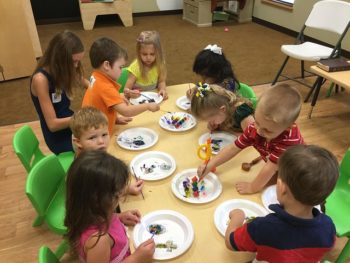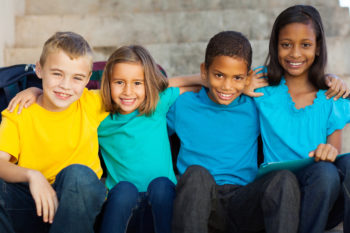Raising Culturally Sensitive Children
Raising Culturally Sensitive  Children
Children
The current political climate in our country continues to challenge families with how to teach their children about cultural sensitivity. Some children love having friends with different backgrounds and cultures. Others have little exposure playing with diverse populations of children. Still, other children are from families who are afraid of (or do not wish to interact with) other ethnic groups or cultures.
10 Considerations
Parents often ask us how they can raise culturally sensitive children. Summarized below are 10 considerations for parents wishing to raise children with empathy and respect for cultures other than their own:
- Parents can model acceptance and appreciation by becoming friends with families from other cultures.
- Parents should seek out social networks with interests common their children. These networks can be found by participating in team sports, performing arts, and through hobbies or clubs.
- By sharing common interests with diverse community members, our children can become comfortable playing and working with people from cultures other than their own.
- Parents must ensure that the groups they form or join are inclusive of all cultures, religions, and ages.
- When families become active in community services for people in need, their children have the opportunity to develop empathy for those who are less fortunate.
- Church communities can invite leaders of other faiths to speak to their congregations as part of an interfaith activities program.
- Suburban schools can partner with inner city schools to share resources, community activities, and field trips. These partnerships can raise children’s social and cultural awareness of their community.
- As various cultural communities form networks, they can learn that they share many similar values and needs because they are all human beings.
- When talking with a friend or colleague who expresses elitist or cultural superiority, it is important to remind them that you are not comfortable with specific remarks. It is vital to set a clear expectation that all cultures are to be treated with respect.
- When inviting a child from another culture to your home for dinner, it is helpful to provide a meal that is traditional to your culture. This will allow them to share a cultural experience with your family.
Respecting Different Cultures
As we consciously help our children become accepting of people from different cultures, our children will become “richer” human beings who have a sense of connection to people throughout the world.
Warm wishes,
Joyce
Copyright © 2018 by GenParenting
 Experiencing Your Culture
Experiencing Your Culture Family Community Service
Family Community Service In this season of Thanksgiving, many of us meet with friends and family to celebrate our blessings. When reflecting on our culturally diverse friendships, the GenParenting bloggers have previously published blogs on how we can raise culturally sensitive children by modeling acceptance, sharing interests, participating in interfaith events, and partnering in community services and school activities. We have shared thoughtful experiences of how our children have shared their American culture with children from other countries. And we have celebrated various heritages at diversity events per the calendar of events at
In this season of Thanksgiving, many of us meet with friends and family to celebrate our blessings. When reflecting on our culturally diverse friendships, the GenParenting bloggers have previously published blogs on how we can raise culturally sensitive children by modeling acceptance, sharing interests, participating in interfaith events, and partnering in community services and school activities. We have shared thoughtful experiences of how our children have shared their American culture with children from other countries. And we have celebrated various heritages at diversity events per the calendar of events at 